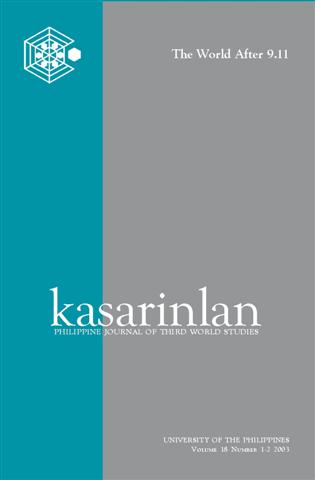Making Sense of the Korean Crisis: Interview with Gavan McCormack
Abstract
Northeast Asia is a major zone of conflict in the post-9/11 world order though it has attracted less analytical attention than the Middle East for obvious reasons. The world saw an escalation of the tension between the United States and North Korea in late 2002 when, after the latter’s withdrawal from the Nuclear Non-Proliferation Treaty (NPT), the two countries began threatening each other with outright war. After President Bush’s branding of North Korea as a “terror state” and a member of the so-called “axis of evil”, the relationship between the two countries has since deteriorated markedly, obliterating whatever gains achieved by the Clinton administration to normalize the US’s relations with North Korea. In an agreement reached with the Clinton presidency, North Korea agreed to shelve its nuclear and missile programs, setting in train the possibility for the normalization of its political and economic relations with the US. All this is now in jeopardy. In this interview, Gavan McCormack analyzes the current situation in North Korea and the US role in the “Korean crisis.” Contextualizing Washington’s role in the crisis is necessary for, as one commentator puts it, the present and past dilemmas of North Korea cannot be fully understood without putting the United States in the picture. McCormack and several analysts contend that Washington’s belligerence toward Pyongyang is borne out of the need to paint North Korea as “evil” in order to maintain its hegemony in Northeast Asia. In effect, Washington is presenting to nations in the region a world shaped by fear of North Korea so that their military, political and economic dependence on the US would continue. This position, however, inadvertently benefits Pyongyang’s intransingent leadership. As McCormack puts it, Bush and Kim Jong Il have a “paradoxically symbiotic relationship.” Bush’s threat against North Korea allows Kim to drum up his people’s nationalist sentiments and legitimize his rule. At the same time, Bush uses the North Korean threat to legitimize US supremacy especially its military presence in Asia. Nonetheless, major actors in the region, notably South Korea and China, are showing their disagreement with US posturing. They have expressed doubts about the US intelligence on North Korea’s possession of nuclear weapons. More importantly, they are in agreement that war is not the solution to the crisis. China, considered as the biggest threat to US domination in the region, has actively brokered negotiations between the US and North Korea. It is worth noting that in spite of the tensions brought about by the Korean crisis, Northeast Asian and Southeast Asian countries are beginning to demonstrate a willingness to foster a sense of community and greater cooperation among themselves, opening up the possibility of a regional solution to this intractable problem. Given this, it is imperative for Washington to outgrow its Cold War assumptions of Asia as economically important but threatening, though such a prospect is not promising given the logic of current American foreign policy.
Published
2007-12-17
How to Cite
MCCORMACK, Gavan.
Making Sense of the Korean Crisis: Interview with Gavan McCormack.
Kasarinlan: Philippine Journal of Third World Studies, [S.l.], v. 18, n. 1, p. 112-132, dec. 2007.
ISSN 2012-080X.
Available at: <https://journals.upd.edu.ph/index.php/kasarinlan/article/view/681>. Date accessed: 03 oct. 2025.
Section
Articles
Keywords
Northeast Asia; South Korea; North Korea
By submitting a manuscript, the authors agree that the exclusive rights to reproduce and distribute the article have been given to the Third World Studies Center.



